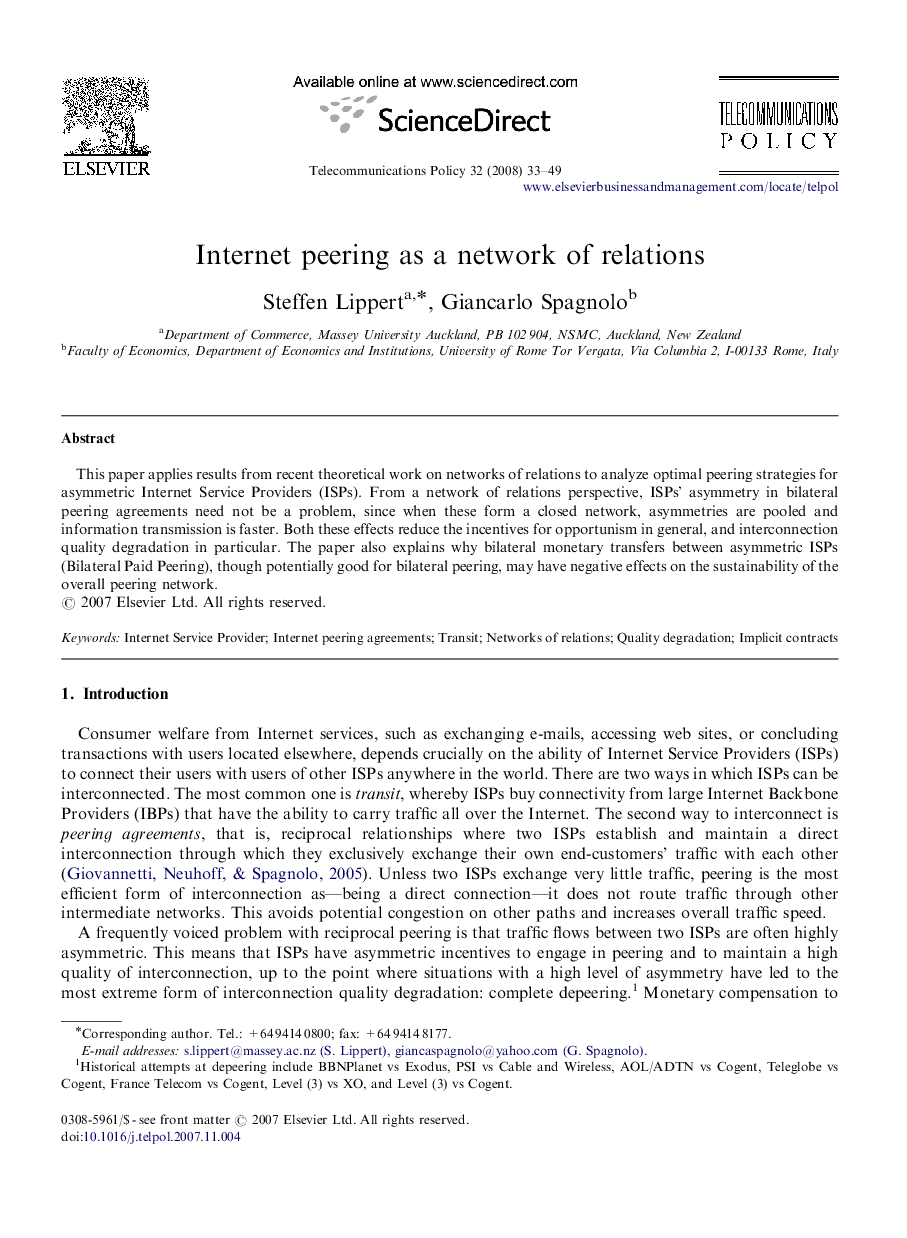| Article ID | Journal | Published Year | Pages | File Type |
|---|---|---|---|---|
| 557009 | Telecommunications Policy | 2008 | 17 Pages |
Abstract
This paper applies results from recent theoretical work on networks of relations to analyze optimal peering strategies for asymmetric Internet Service Providers (ISPs). From a network of relations perspective, ISPs’ asymmetry in bilateral peering agreements need not be a problem, since when these form a closed network, asymmetries are pooled and information transmission is faster. Both these effects reduce the incentives for opportunism in general, and interconnection quality degradation in particular. The paper also explains why bilateral monetary transfers between asymmetric ISPs (Bilateral Paid Peering), though potentially good for bilateral peering, may have negative effects on the sustainability of the overall peering network.
Related Topics
Physical Sciences and Engineering
Computer Science
Information Systems
Authors
Steffen Lippert, Giancarlo Spagnolo,
